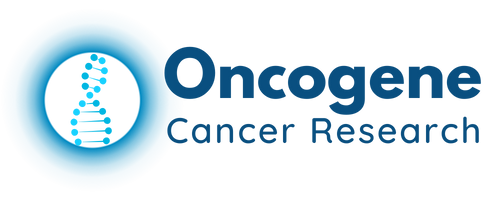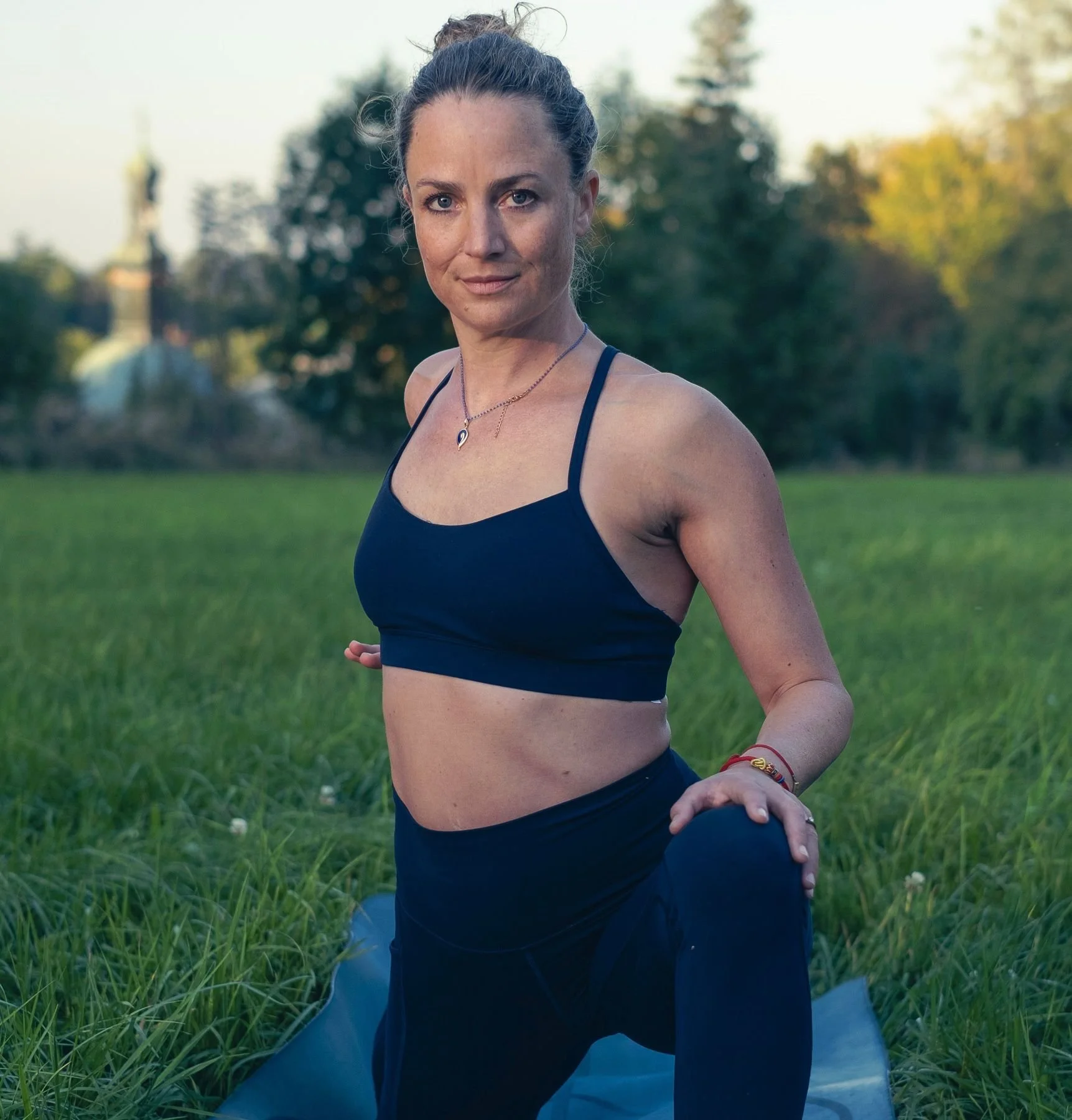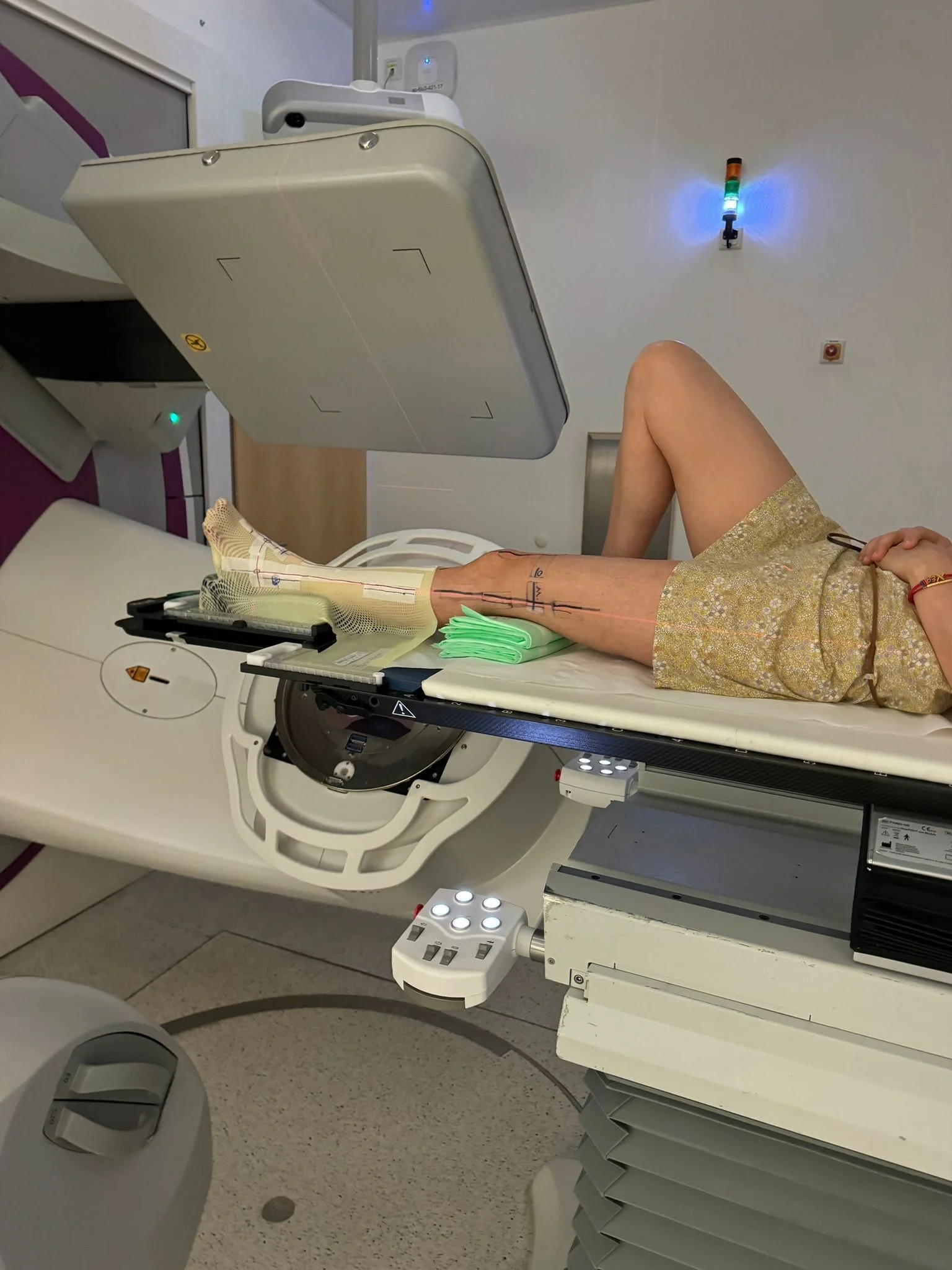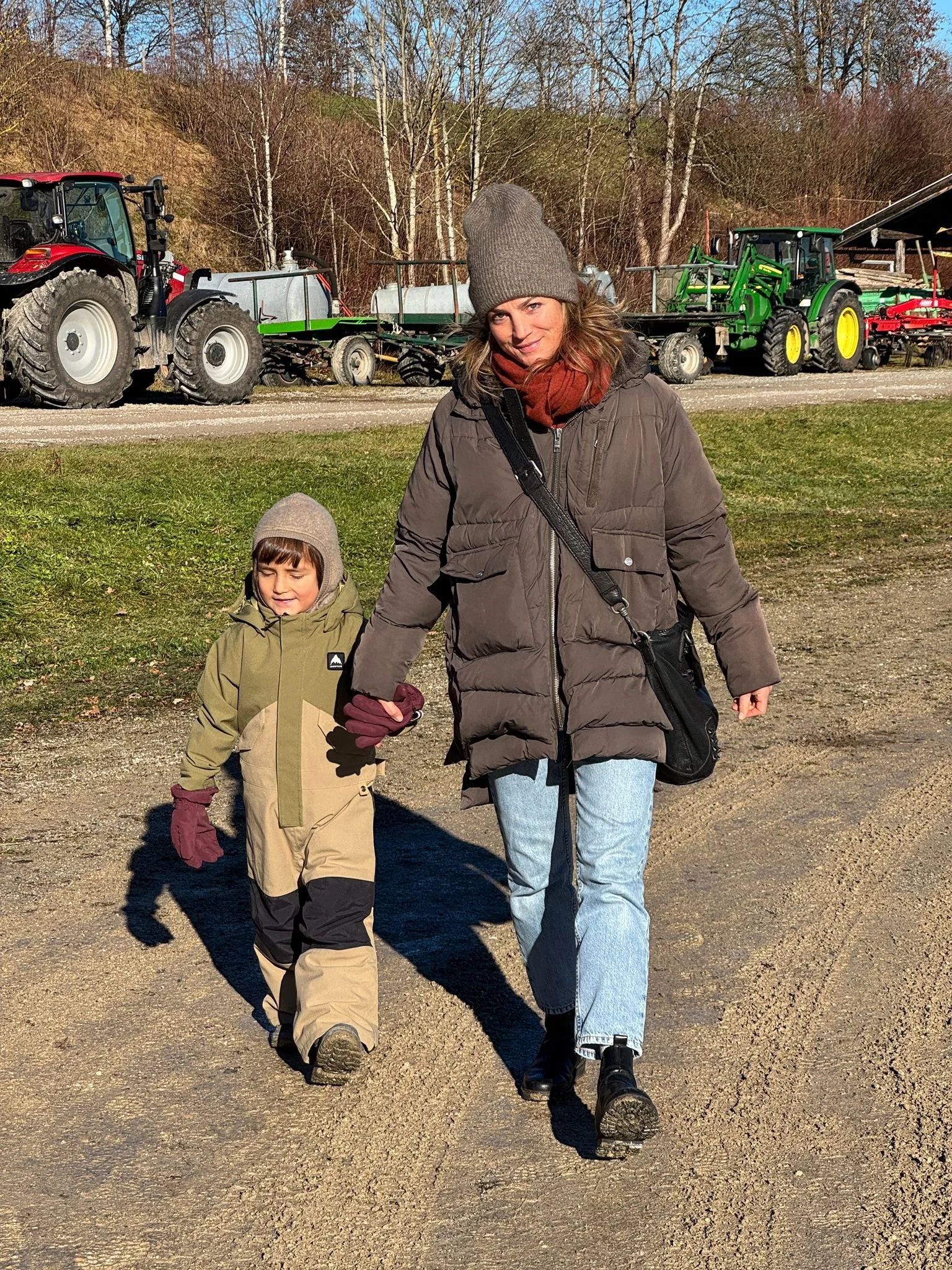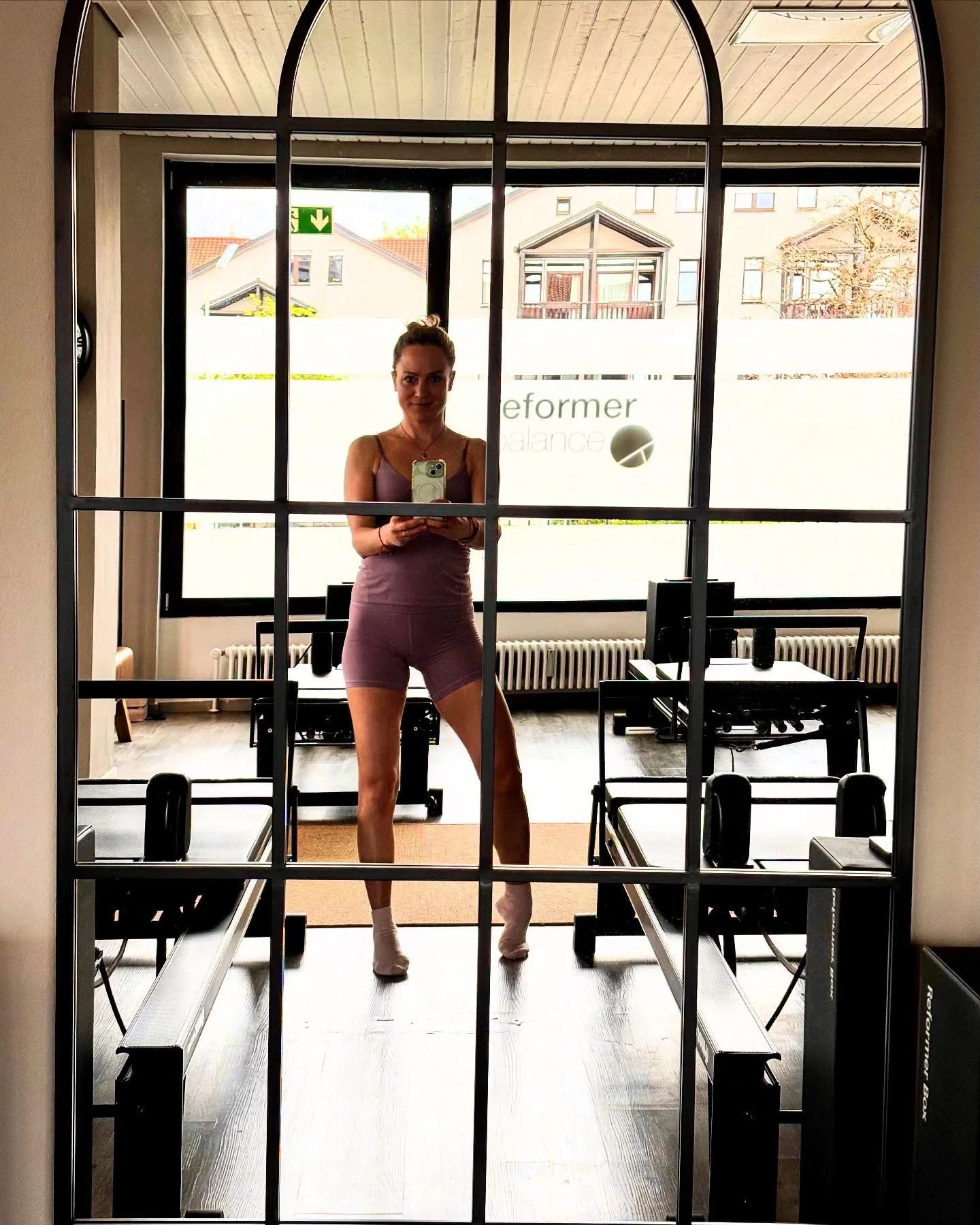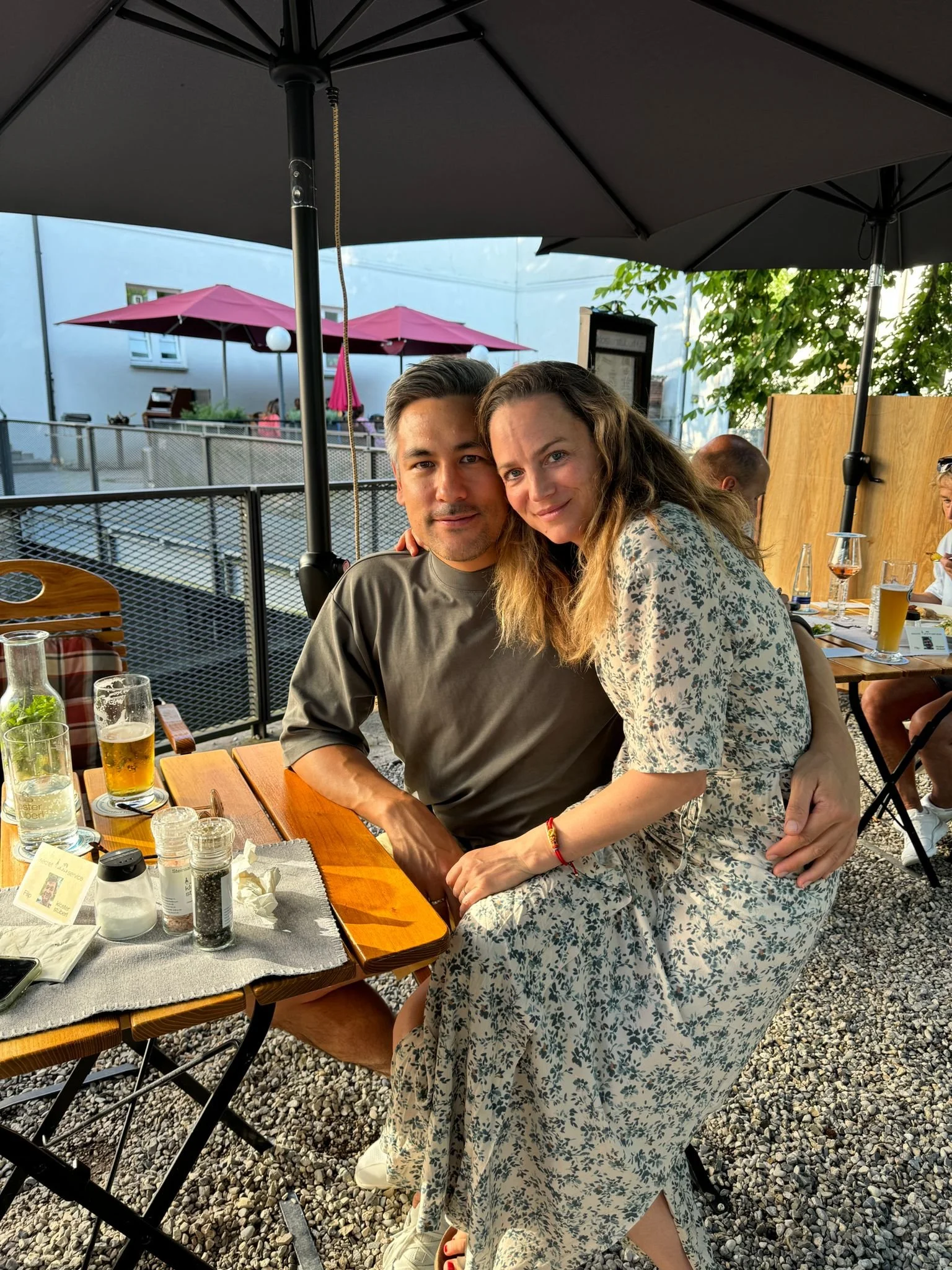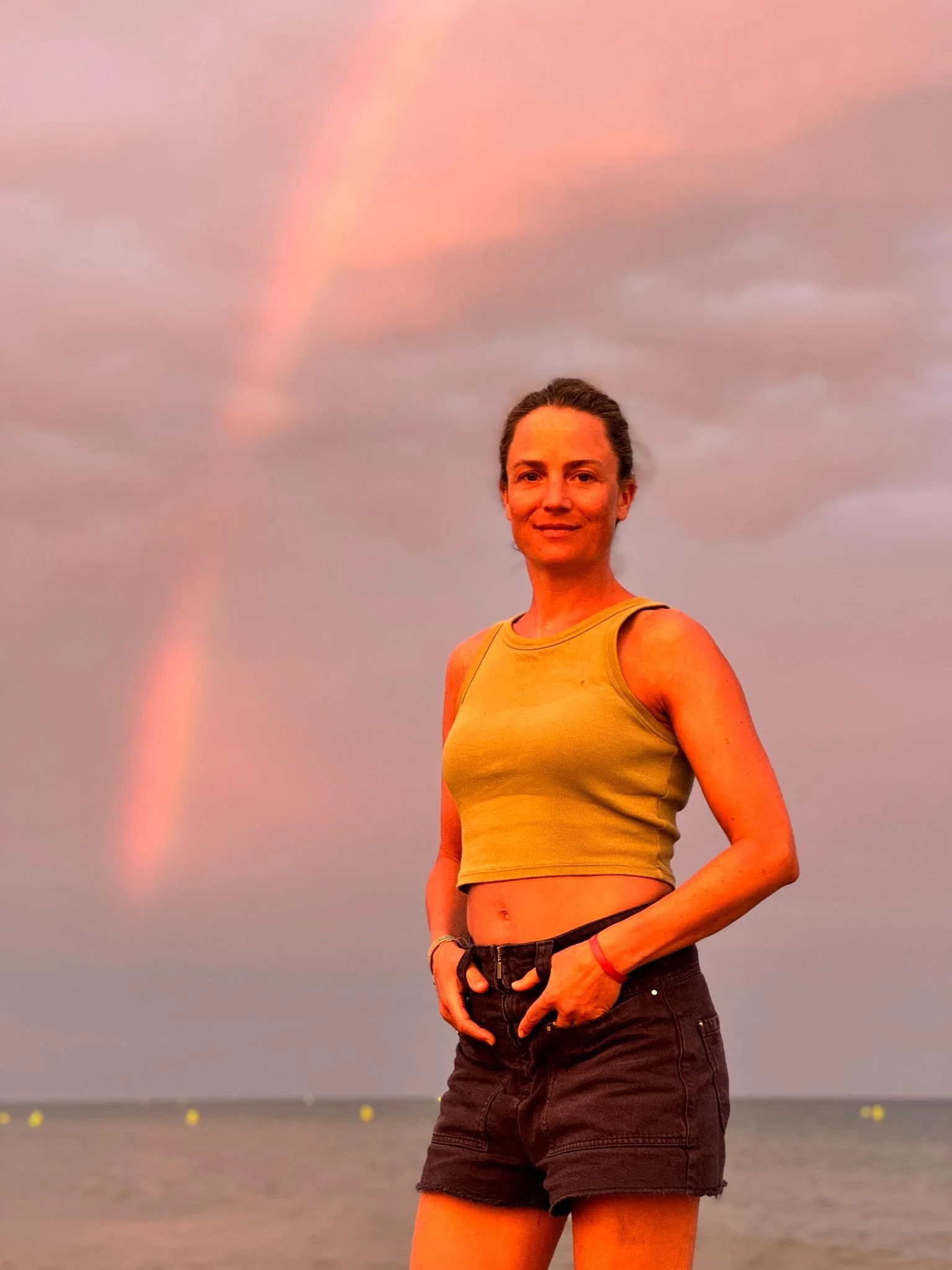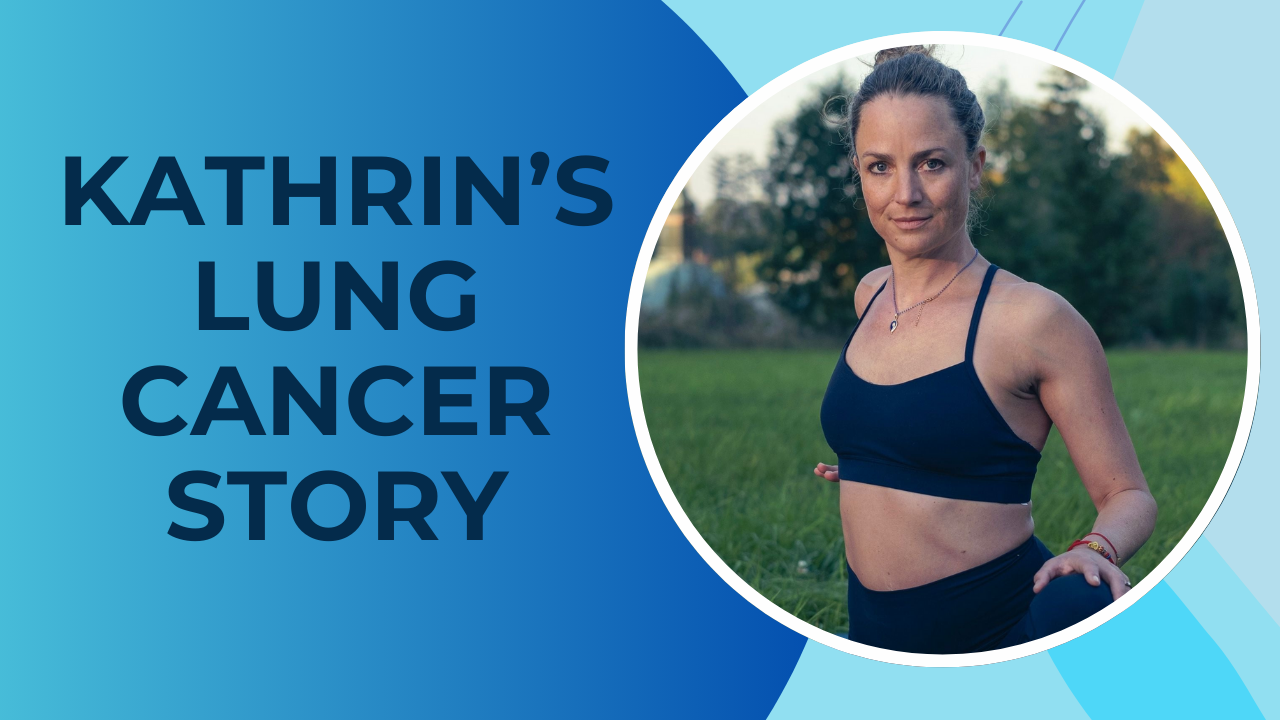Patient stories.

How can my foot pain be lung cancer?
— Kathrin Wonesch (centre), from Munich, living with stage IV, ALK-positive lung cancer, with husband and son
Kathrin’s story
Crippling foot pain led to my lung cancer diagnosis
Research is why I’m still here. Had I received this diagnosis 10 or 12 years ago, maybe I would have died. This is why I’m raising awareness.
When 44-year-old Kathrin, an energetic and bubbly fitness professional and mother to a young four-year-old son, experienced unusual fatigue, loss of fitness and an overall malaise in late 2023, her doctors put it down to pre-menopause and being an active mother. But Kathrin knew something was wrong with her body. Suddenly she was sleeping 12 hours a night and still waking up exhausted.
Kathrin recalls having uncharacteristic dark thoughts and feeling depressed, "My doctors said essentially there was nothing to worry about. This will pass. Just sit on the couch, relax.'"
Around May 2024, Kathrin developed crippling foot pain and found that not only could she not train her clients or exercise, but she also struggled to walk.
The scans looked like they were full of lightening. I thought, ‘this can’t be me. I’m still walking and breathing. This looks so serious.'
The discovery
When the foot pain persisted, doctors ordered an MRI. To everyone's surprise, they discovered a tumour. Initially thought to be benign, a biopsy revealed something far more serious: a metastasis.
"I will never forget this because first they saw the tumour and they thought it would be benign. But then it turned out that it's malignant," Kathrin explains.
Initially suspected to be bone cancer, next followed the whirlwind of scans. Doctors at a renowned Munich clinic moved quickly to find the primary cancer source. A PET-CT scan revealed the devastating truth – cancer had spread throughout her body: in her spine, liver, abdomen, lymphatic system, and lungs.
"The scans were displayed over a wall and what I saw looked like lightning everywhere. I thought, 'This can't be me. I'm still walking. I'm still breathing and that looks so incredibly serious.'"
A bronchoscopy in early June 2024 confirmed the shocking diagnosis: stage 4 lung cancer. The news was especially shocking as Kathrin had maintained a healthy lifestyle and had no known lung cancer risk factors like tobacco use. But with the diagnosis came a glimmer of hope – biomarker testing revealed Kathrin had the ALK-positive fusion.
"You've won the lottery"
When her oncologist told Kathrin that she had "won the lottery" with her ALK-positive fusion, she was bewildered by this strange characterization of this devastating diagnosis.
"I was like, 'If I won the lottery, this is the worst lottery,'" she recalls.
But there was truth in those awkward words. Instead of traditional chemotherapy, Kathrin qualified for targeted therapy – an oral pill that targets specific genes involved in cancer growth, rather than attacking all rapidly dividing cells like chemotherapy. In Kathrin’s case, she takes a pill called lorlatinib, designed specifically for her ALK+ lung cancer. Her oncologist confidently told her: "You just take the medication and when we see each other in six weeks' time, I’m going to tell you it’s all gone."
It seemed too simple to be true. Kathrin took the medication and went to France for a glorious six-week vacation. When she returned, the results were nothing short of miraculous.
"I took the pill, and at my first scan I was told that 96% of the tumours and nodes had disappeared," she says, still sounding amazed at the effectiveness of her targeted treatment.
Kathrin with her son
Family through crisis
One of the hardest moments came when Kathrin's young son asked the question no parent ever wants to hear: “Mum, are you going to die?"
"It was so hard. There was something inside of me that I just didn't know how to answer," Kathrin shares, her voice breaking. "I will never ever forget that moment. It was the most terrible part of the whole diagnosis."
She eventually responded with the only honest answer she could give: "No one knows when they're going to die."
Today, her son has incorporated her cancer treatment into their routine. He accompanies her to the pharmacy when she refills her prescription, and he often checks the kitchen cabinet where it’s kept making sure she has enough medication. "He knows that this is the life-saving drug and it's very important for him to see that I'm taking the medication," Kathrin says.
Finding a new normal
Initially prescribed the full dose of 100 milligrams of lorlatinib, Kathrin experienced some side effects including weight gain and what her husband described as increased aggression. Her doctors reduced her dose to 75 mg, which proved to be her optimal balance. She describes feeling more energized on the medication – sometimes almost too much.
"I have no fatigue at all. I really have to be careful that I'm not over doing it," she explains. "I feel it gives me more power, more energy."
She manages the tingling sensations in her extremities – known as neuropathy, a common side effect – with physical activity and dry brushing to improve circulation. Kathrin has embraced a strict, healthy diet: no processed foods, no sugar, no alcohol, and plenty of vegetables and fruit.
Most importantly, she's returned to her work: teaching yoga and Pilates – fulfilling her greatest hope after diagnosis.
"My highest concern was not being able to go back to my job, to my work, not to be strong enough," she says. "But I am, and that makes me so happy because I totally love my job. I love exercising with people."
Living with purpose
A year after her diagnosis, Kathrin approaches life with profound gratitude. Her foot has completely healed. She practices Joe Dispenza's meditations daily, carefully monitoring her thoughts and feelings.
"I think this is the most important part when you have this kind of diagnosis – that you really be aware of what you're thinking and feeling because this is what you become," she explains. "Fear is such a strong, powerful emotion. I feel if you're not able to overcome fear and bad feelings, I believe it will hurt or at least not help you."
Kathrin remains as ambitious as ever. She is planning on opening her own fitness studio and is developing her own Pilates education system. Today she also finds beauty in the simple moments – smelling the spring air, watching the sunrise – appreciating that she's still here to experience them.
"I feel like this is a second life. I'm trying to live as if I don't have cancer because I don't feel this diagnosis right now," she shares. "I'm so lucky. I'm so grateful. Currently, I have no cancer symptoms. I don't want to let this diagnosis bring me down because right now, there is no reason why. I'm feeling healthy, I'm feeling powerful; I'm alive."
The power of research
Kathrin credits medical research for her survival. "Research is why I'm still here. Had I received this diagnosis 10 or 12 years ago, maybe I would have died," she acknowledges. “It’s also why I’m trying to raise awareness. I’m due to speak at an important cancer conference in my area soon.”
She stays informed about the latest lung cancer research and treatments, following doctors like Dr Eric Singhe and Dr Narjust Florez, and organizations like Oncogene Cancer Research, Young Lung Cancer and ALK Positive on social media.
For anyone newly diagnosed, Kathrin emphasises the importance of seeking care at renowned clinics where biomarker testing is standard practice and staying informed about the latest developments in lung cancer research and treatment.
"Information is power," she believes.
As Kathrin looks to the future, she holds onto hope for a cure. Until then, she'll continue teaching, inspiring others, and embracing each day with mindfulness and joy.
"I'm hoping for a cure. I'm dreaming of it," she says. "I'm not trying to be angry. Nobody knows when it's time to die. So, I'm living my life right now."
May 2025
Be sure to check watch our Patient Voices Podcast interview with Kathrin
Click here or the picture below to launch the playlist.
